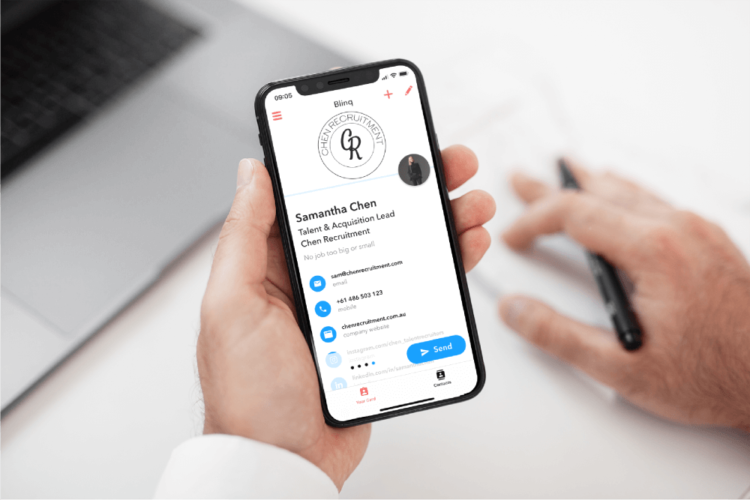When it comes to a digital business card, there are many benefits for an individual and a company to retain. This material is practical enough to display in one’s portfolio and general details since it contains name, email address, phone number, photo, video, social media profiles, and freelance company logo. Apart from that, it offers many benefits, such as:
Convenience
Digital business cards are suitable to utilize and often have more functionality than their traditional counterparts. Individuals can store as much information as they need and are not limited by space. They can also include social media accounts and URLs along with phone numbers. Additionally, digital cards are more environmentally friendly than their traditional counterparts.
Retargeting users who have scanned the QR code on one’s business card
People can use retargeting to get customers back after they have perused the QR code to announce a new launch. These individuals can even employ retargeting to drive traffic to a promotional video. This method is only suitable for some businesses. It requires careful planning to ensure that it will work for you.
Furthermore, the QR code is one of many matrix codes for sharing smart business cards. Entrepreneurs can utilize URL (Uniform Resource Locator) and NFC (Near Field Communication) tags.
Once users scan these matrixes on their business cards, the retargeting platform can track their interests and display relevant ads. If the user is interested in a business’s product or service, they can utilize retargeting to promote similar products.
Secure Customer Data
As the application of digital business cards grows, it is essential to protect customer data. It is imperative to ensure that the digital business card maker has the highest standards for security. Ideally, this digital business card maker will be GDPR (General Data Protection Regulation) compliant and use the most secure data encryption. Furthermore, this provider should offer features such as custom domains, SSO (Single sign-on) authentication, and ease of sharing.
One method to secure customer data when using electronic business cards is to use NFC, a technique used to transmit data wirelessly. Near-field communication is most used in payment services, where purchasers tap their phones to an NFC-specific device to capture credit card information. Some digital business card providers have CSV bulk upload capabilities, making it easy to simultaneously upload large amounts of data.
If you want to learn more about digital business cards and their significance, read the infographic below, created and designed by NFC Tagify:


